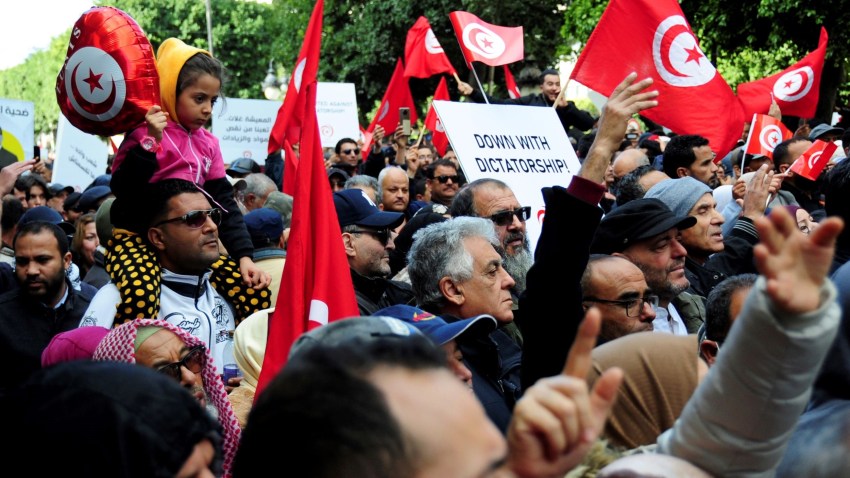The pace of Tunisia’s democratic backsliding has accelerated in the months since President Kais Saied announced measures allowing him to rule by decree on July 25, 2021. Saied began by dismissing the Cabinet and parliament. Then in 2022, Saied rewrote the constitution and passed it through a referendum in August for which just 30 percent of voters bothered to turn out, sealing his centralization of power.
He then changed the electoral law ahead of parliamentary elections in December, forcing candidates to run as independents, rather than under party lists. As a result, the majority of Tunisia’s opposition boycotted the elections, which resulted in a weak, compliant parliament. At the same time, Saied has presided over a period of increasing curbs on freedom of expression and heightened populism.
In the past week, three people who have publicly criticized Saied were arrested, bringing the total number of critics who have been jailed to 12, according to Human Rights Watch. The profiles of those behind bars range from opposition politicians to civil society figures to journalists. Saied has been giving speeches calling his critics “terrorists” and framing them as a national security threat, paving the way for harsh sentences to be imposed on those arrested.

